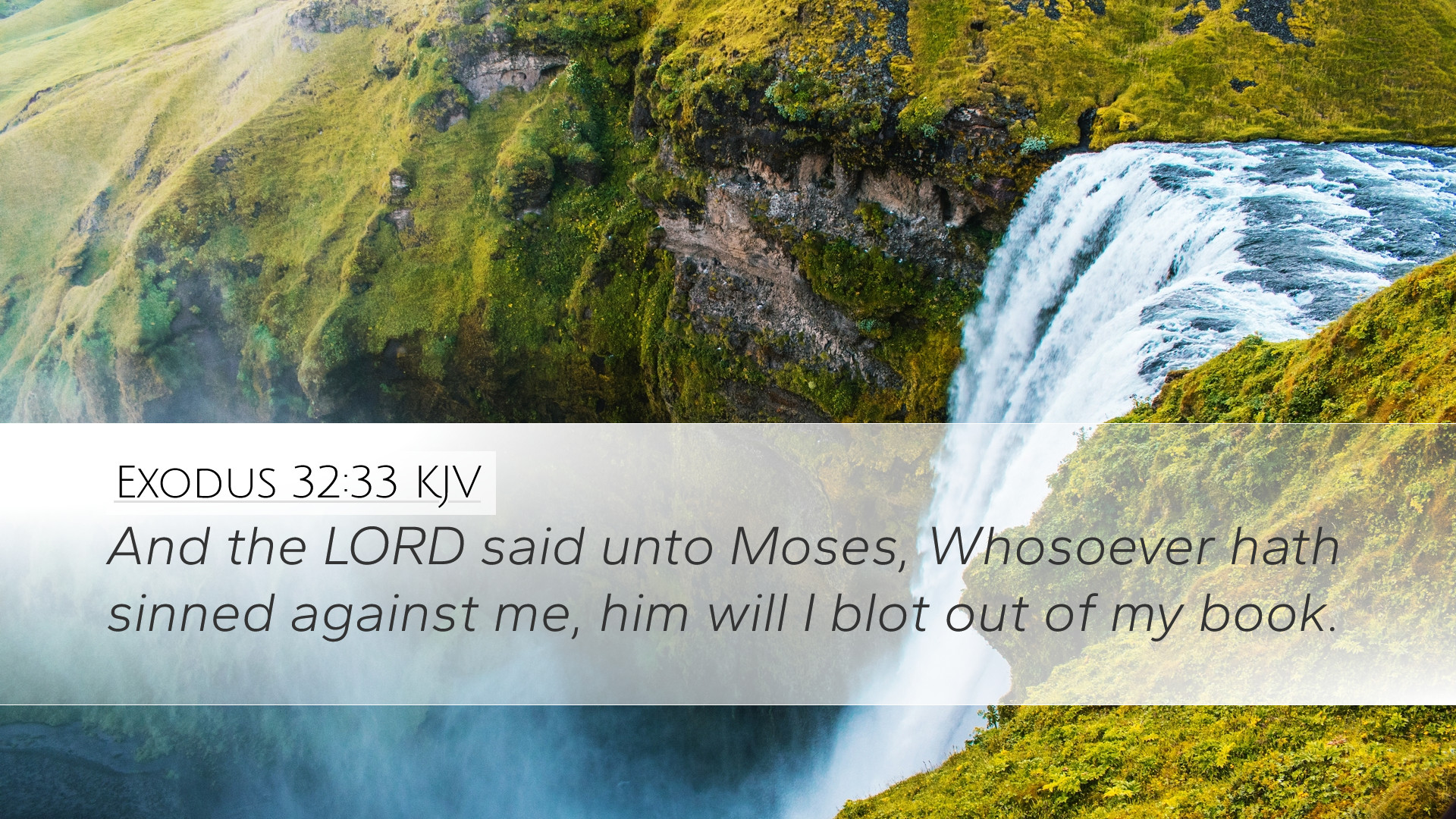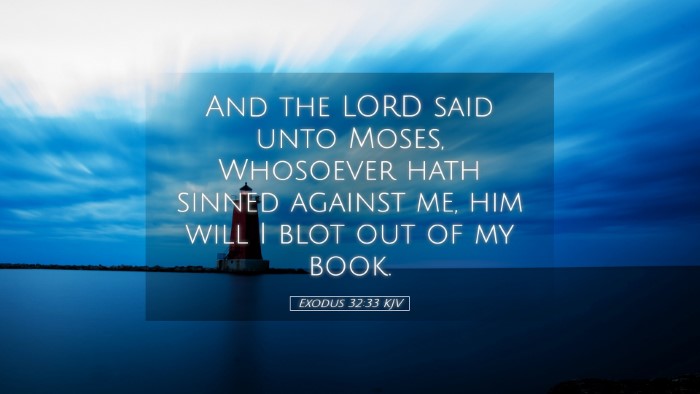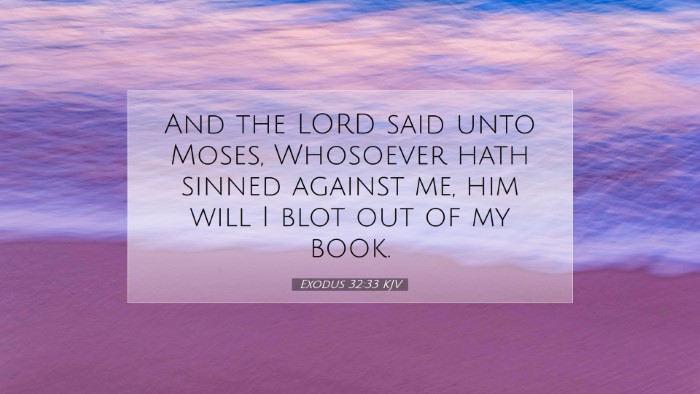Commentary on Exodus 32:33
Exodus 32:33 presents a poignant moment in the narrative of Israel's covenant relationship with God, encapsulating themes of sin, intercession, and divine justice. The verse reads, "And the Lord said to Moses, ‘Whoever has sinned against me, I will blot out of my book.’" This profound declaration invites a range of theological reflections and insights from various public domain commentators.
Overview of the Context
This verse occurs within the broader context of Israel’s apostasy following the incident of the Golden Calf. The people, in their impatience and longing for visible leadership, turn to idolatry, prompting Moses to ascend Mount Sinai to plead with God on their behalf when he discovers their sin. As we consider the commentary, understanding the gravity of sin against God and the consequences that ensue becomes pivotal.
Moses' Intercession
Moses stands as a mediator between God and the people, embodying the role of an intercessor. Henry emphasizes the gravity of sin when God's chosen people disobey. He notes, "Moses' plea reveals the nature of true leadership—one that bears the burdens of the people and deeply desires their restoration." This intercessory aspect points to the qualities of a faithful shepherd who not only advocates for forgiveness but also understands the serious ramifications of sin.
The Book of Life
Albert Barnes elaborates on the concept of "the book" mentioned in the verse. He suggests that this “book” symbolizes God’s record of those who are righteous and granted eternal life. He asserts, "To be blotted out implies exclusion from the blessings and privileges of God's covenant community." This raises essential questions about the permanence of one's standing with God and the nature of divine judgment.
- Formal Inclusion: The idea of being 'written' in God's book symbolizes being part of the saved community.
- Conditional Participation: The implications suggest that this status is not absolute; disobedience could lead to removal.
Theological Implications of Sin
Adam Clarke provides a thorough exploration of sin's consequences as articulated in this verse. He asserts, "The essence of sin lies in its rebellion against God's holiness and the need for repentance and reconciliation." Clarke's insights highlight how sin alienates humanity from God, creating a breach that can only be healed through genuine repentance and divine grace.
God's Justice and Mercy
The juxtaposition of God’s justice and mercy is significant in this verse. While God declares the fate of sinners, Moses’ ongoing advocacy signifies the possibility of mercy through intercession. Henry remarks that "God's justice is unyielding, yet His mercy is abundant towards those who earnestly seek His forgiveness." This duality provides a rich discussion point for theologians concerning the balance of divine attributes.
Application for the Modern Believer
In application, this verse serves as a critical reminder of the seriousness of sin within the context of our relationship with God. It invites believers to consider their standing before Him: "We are challenged to live lives consistent with our commitment to God and to pursue holiness." The need for intercession in the face of transgression underscores the importance of prayer and accountability within the community of faith.
- Repentance: Emphasizing the need for turning back to God when one recognizes personal or communal sin.
- Intercession: Encouraging believers to pray for one another, understanding the power of standing in the gap before God.
Conclusion
Exodus 32:33 embodies significant theological insights regarding sin, judgment, grace, and the intercessory role of leaders. As pastors, students, and scholars reflect on this passage, it reminds us that while God’s justice will not be compromised, His mercy is aggressively sought after through heartfelt intercession. The challenge remains for the modern believer: to live in accordance with God’s will and to advocate for others in prayer.


